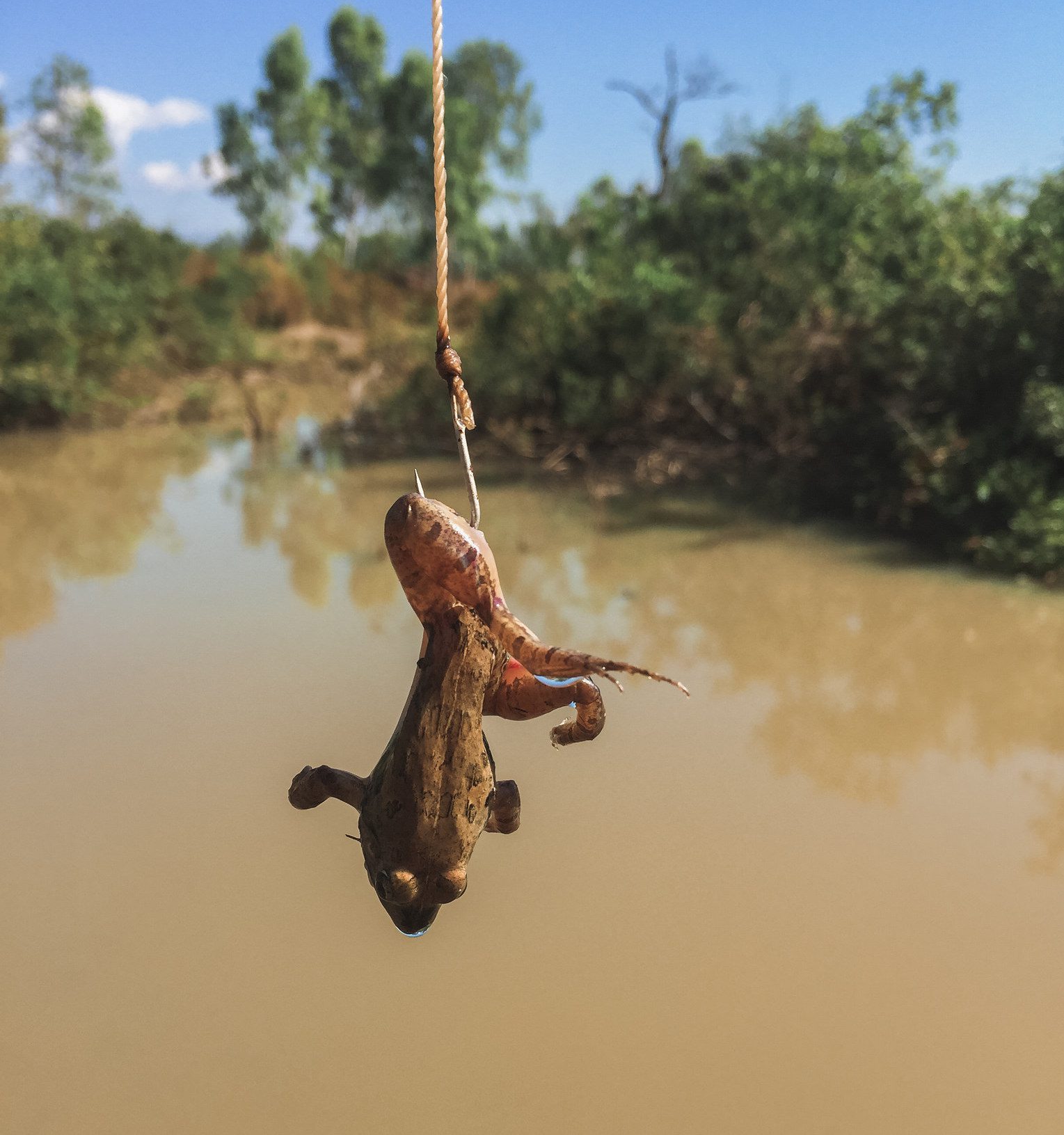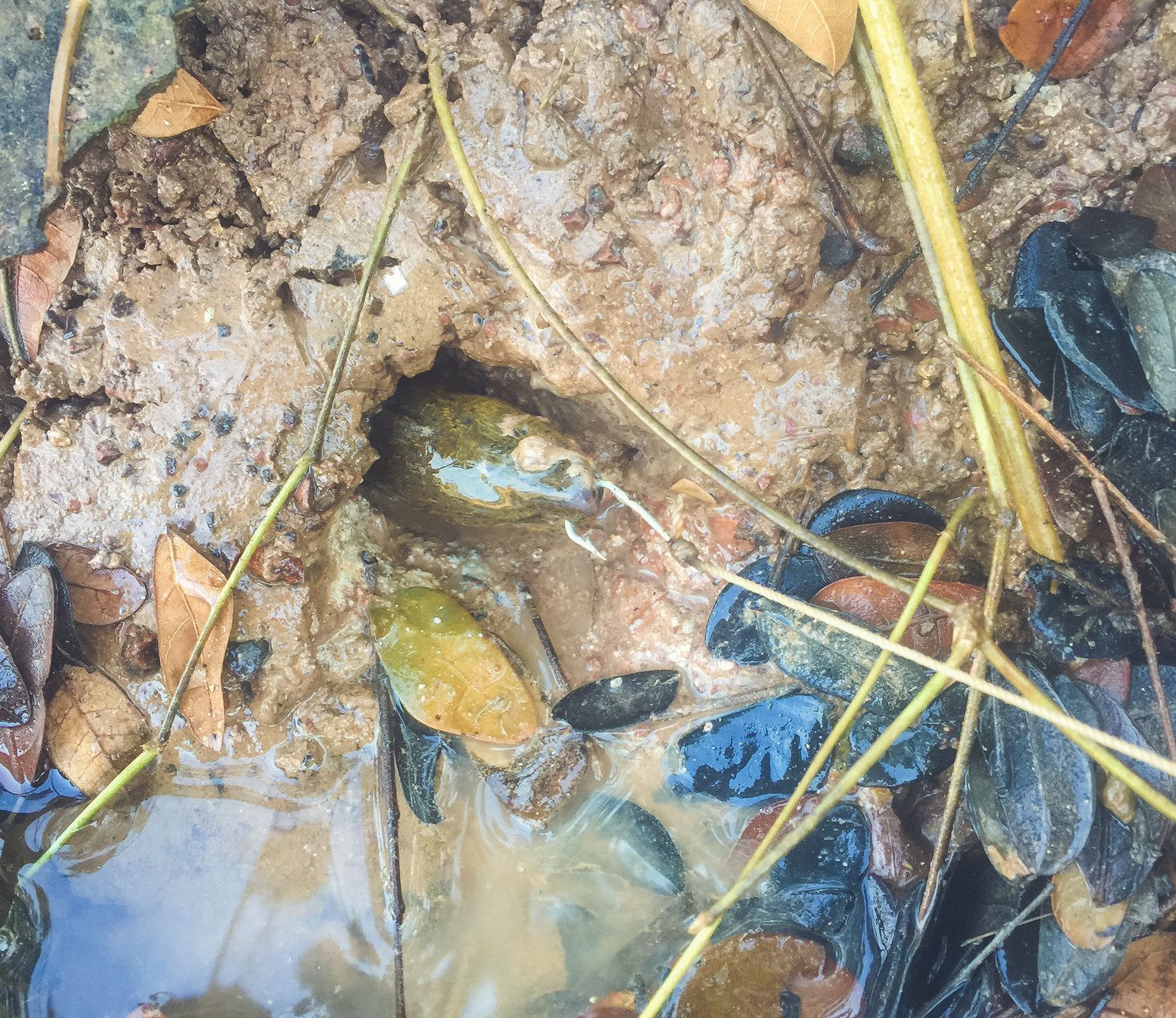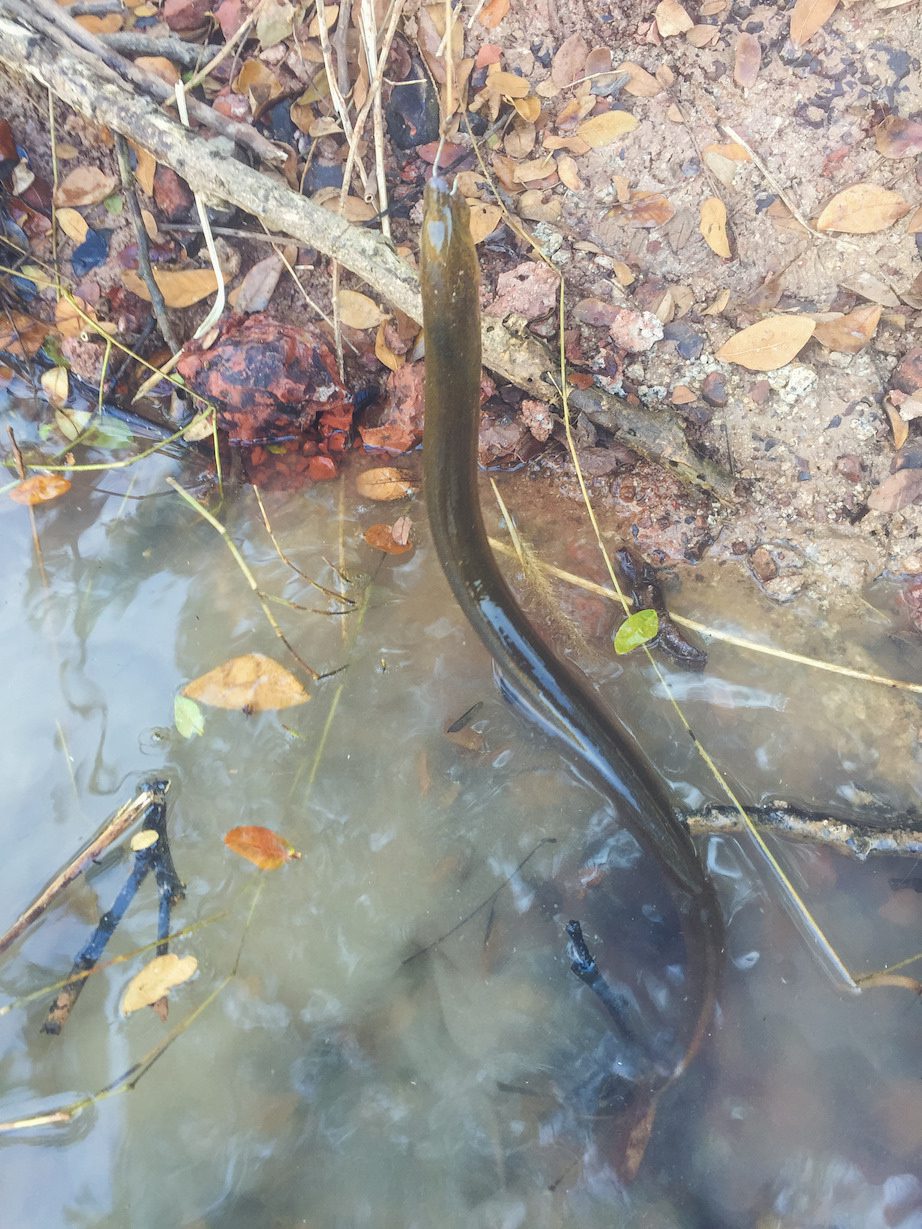Wednesday February 1, 2017
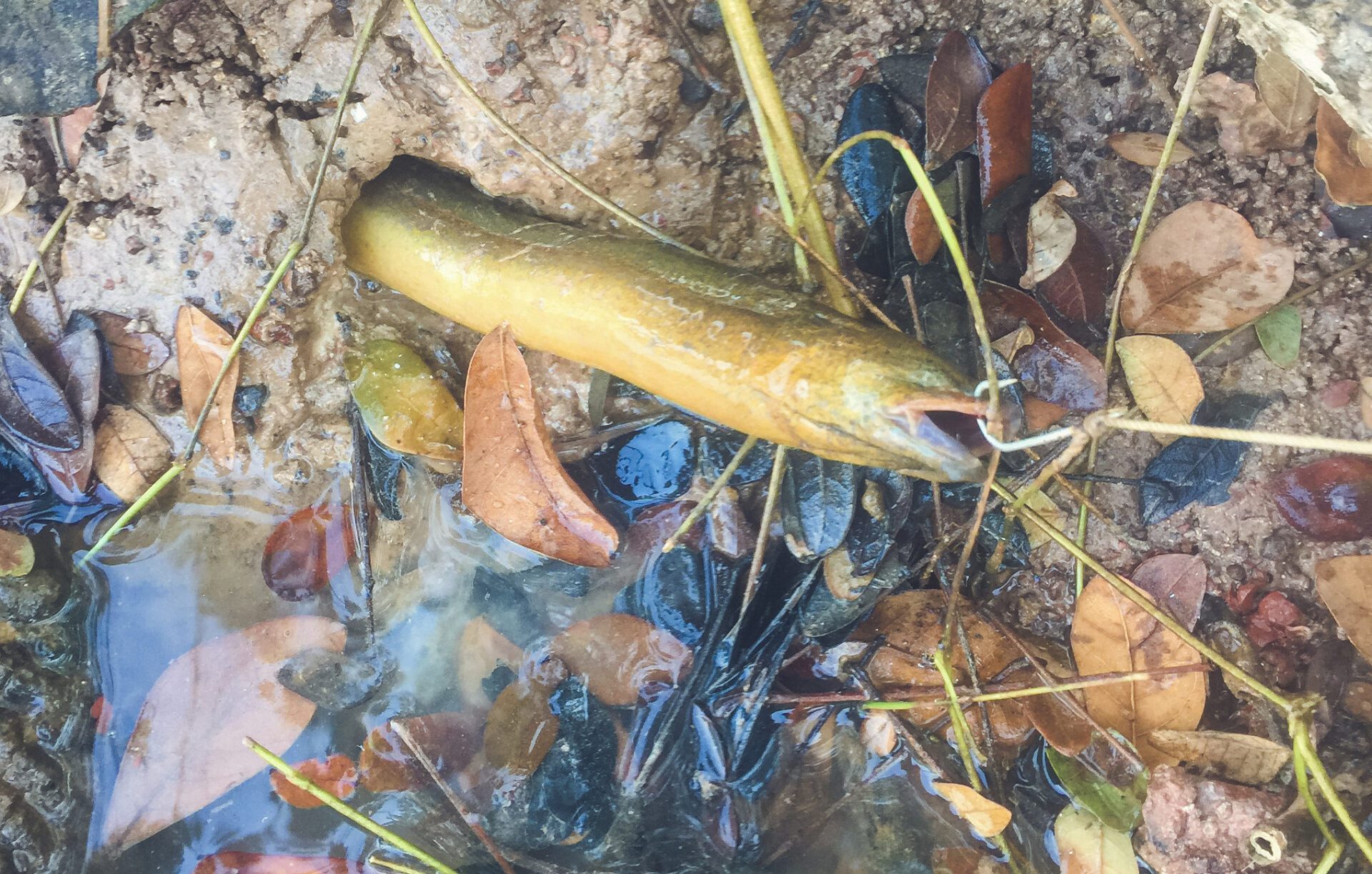
When people talk about “fishing by hand” in Laos, it can literally mean sticking your hand with a hook into the hole of an eel. Freshwater eels (Monopterus albus) are called “ein” in Lao, and have a long body that looks similar to a snake, but does not have any scales . They live in muddy areas such as swamps, marshes, ponds, and wetlands. Eels eat other aquatic animals and detritus. During the dry season, they will create underground holes along the riverbank for their living habitats. A skilled fisher knows how to catch an eel in its home.
This fishing method draws on unique local knowledge by using small frogs (Fejervarya limnocharis) as bait. Before fishing, people first have to go hunt small frogs using lights at night. Eel fishing by hand occurs during the daytime, and differs from other local fishing gears such us basket eel traps and bamboo eel traps because it does not require too much waiting (not more than 30 minutes). When FISHBIO staff were on a gillnet sampling survey in the field, we saw fishers at Mouangsom Village in Saysomboun Province using this technique.
Fishers who are mostly teenagers use floating hooks with with nylon strings for this technique during the end of the rainy season through the dry season (October to May). During this time there is less water in the wetland areas, so eel holes are easier to access. The physical characteristics of an eel hole include a wet, round shape in the riverbank where turbid water occurs. It could be located in shallow water or in wet, muddy areas. In general, fishers search for a fresh hole where they believe an eel is living inside. Then, they hang a small frog on a hook and put it into the hole about 40 cm (~16 in) deep. They wait until the eel bites, then use their hands to take the fish out of the hole.
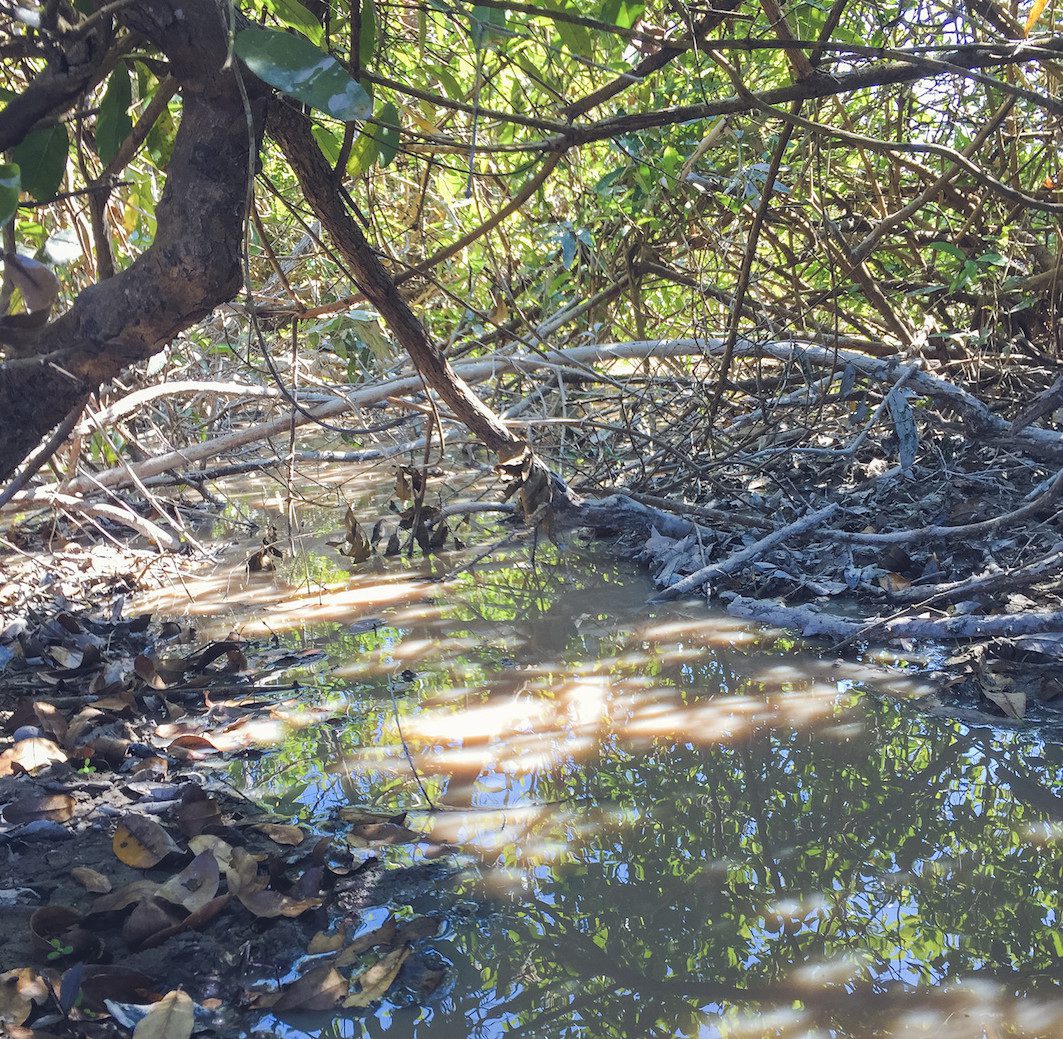
Usually fishers will try about 15 to 20 holes per day with this technique, and often catch about 5 to 10 eels per day, or about 1.5 to 2 kg (~3-4 lb). Eels can be used to cook special dishes like barbecued eel, tom yum eel soup, and spicy fried eel with a lot of herbs. If fishers catch many eels, they will sell them for about 70,000 Lao kip (~$8.50) per kg at the local market or in their own village. However, this technique is not too common in Laos because the catch rate is low compared to other fishing gears like eel basket traps and bamboo eel traps. And sometimes, an unlucky fisher will guess wrong and put their bait into a crab hole instead – and may feel the pinch!

